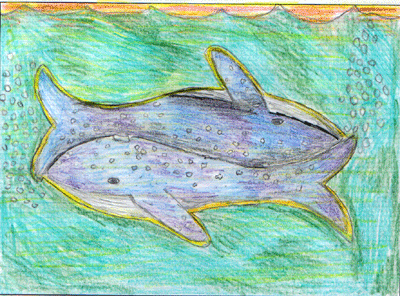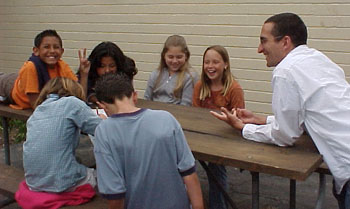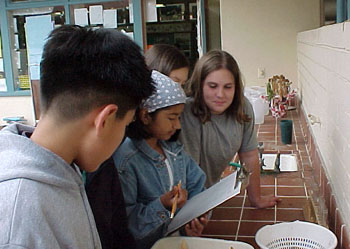|
Welcome to the Adams School Web Page for Ms. Rogers-O'Reilly's class!

Our motto is: Follow the whale's tail...while you sail Claire Cordeiro
Ecology is important because...
...it gives us an understanding of sea life so maybe in the future we will be able to help them. It teaches us about how other creatures interact. It teaches us to appreciate other creatures. Nick Rettie
...we learn about plants and the environment. We learn about ourselves. William Campbell
...the study of animals and whales is important because we need to know how many there are and how many are left so we can protect them if they're endangered. Claire Cordeiro
...all of the fish and plants in the ocean give us resources and food that we need to survive. Ecology is also important to ecologists because we need to know how the plants and animals behave and interact with others. Ecology is also important because the animals that live in the ocean give us the life we have and the air we are using. Hayden Boyd
...animals and plants need each other to live. If plants are gone then some insects are gone too. Trees and plants give us oxygen to breathe. If they are gone the oxygen will run out. If we litter, pretty soon there will be no plants or trees. Cassandra Esparza
...you learn. You get to do things. You feel how important it is. Gerardo Juarez
...it's learning. It's fun. It's cool. Ian Kiser
...if you recycle it could help a lot. You might think a can isn't a lot, but it is. I would like a clean environment and I think a lot of other people would too. Marcus Morosin
...we might need to know what is alive or extinct. It helps us understand plants and animals better. Not knowing what is extinct, we might try to help breed it and not find it. Alex Clark
An interview with our ecologist
We have been working on an ecology project with our scientist, Parviez Hosseini. Here is an interview with him, conducted by Hayden J. Boyd and Christopher T. Wentling:
The scientist who came to Room 6 was Parviez Hosseini. He was born in 1971 and in Buffalo, New York. He has been here in Santa Barbara for 6 years.
Parviez works normally in the office at Campus Point. You may see him working at coffee shops and at home. He studies population dynamics and ecology. The part he likes most about his job is that "it is both challenging and fun." In his spare time, he likes reading and working out.
When he was young, he always liked animals of any type. He officially started doing classes in 7th grade, but he officially started working in college.
His advice for kids our age is to work hard in math and keep a creative and open mind. He also wants us to know that you don't suddenly become a scientist, "it's gradual."

Our Experiment
We tried to grow California poppies under different conditions. We planted some in soil and others in sand. Then we watered them either with plain water, salt water, or a mixture of plain water and salt water.

Checking our results: in what treatment did poppies grow tallest?

One of our growing pots
|

